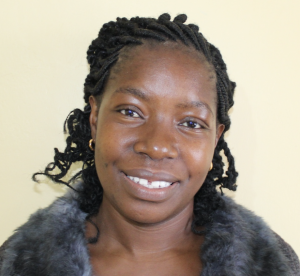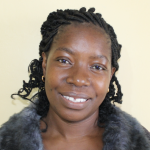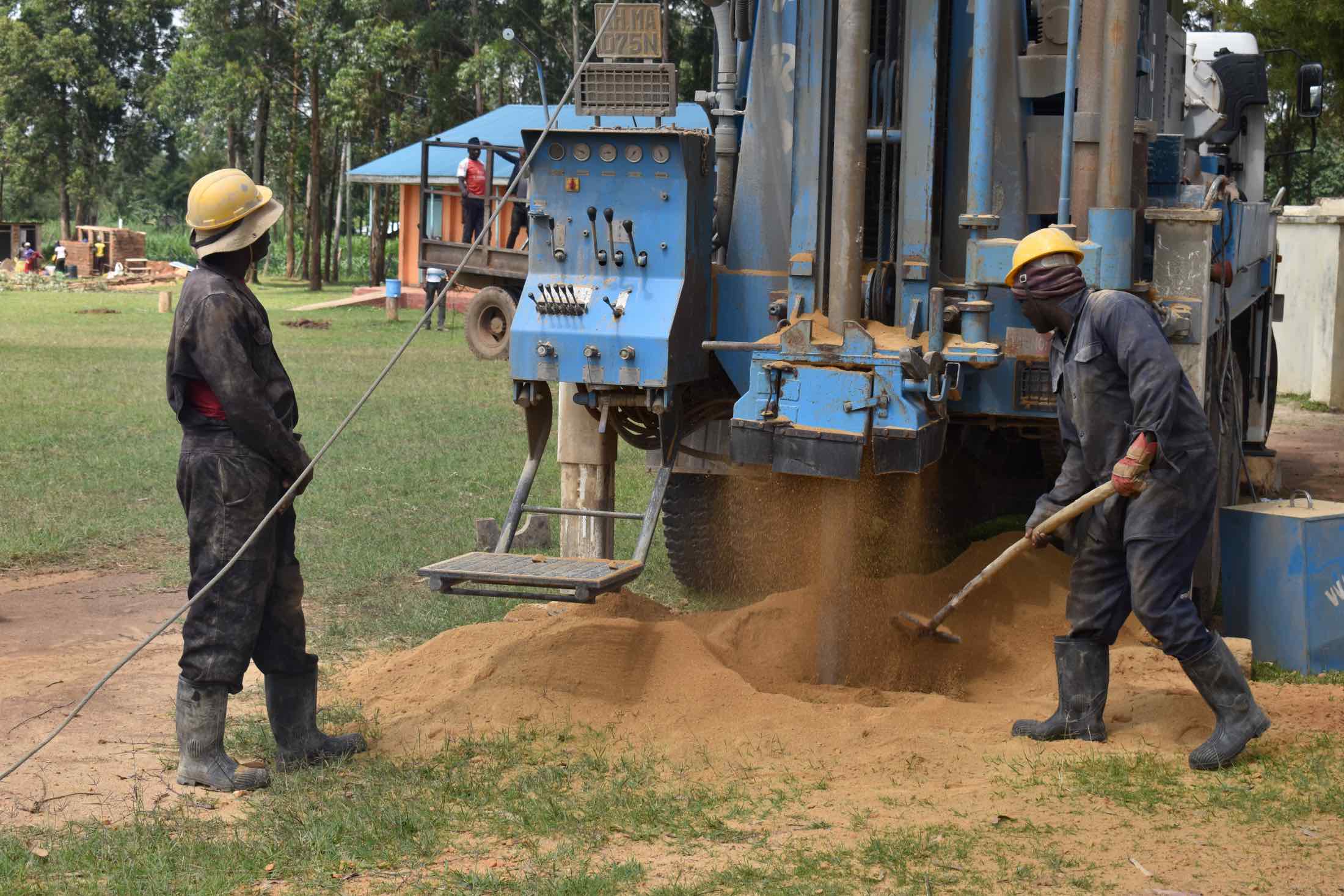"Our school population is very high, but we lack a reliable source of water. Students suffer a lot and most of them miss school due to waterborne diseases," said Charles Otunga, the Deputy Principal at Lunyinya Primary School.
There are 1,065 students and 24 teachers and staff at Lunyinya Primary, yet hardly any water on campus to meet all of their drinking, cooking, and cleaning needs.
The school has three small plastic rain tanks that combined have the ability to store 25,000 liters of water - a very small amount. With such a large student population, the tanks quickly run dry in just one to two days after it rains.
Each morning, to make up for the school's severe clean water shortage, students have to carry water from home along with their school books. With so many students coming from different parts of the village, however, teachers are not able to monitor exactly where students fetch water. Water from "home" can easily be from unsafe sources such as streams and puddles along the road to school, chosen by students simply for their convenience to help ease their burdensome walk to school while trying to get to class on time.
During break time and lunchtime, students are again sent out for more water. They have to rush to a spring in the village where community members force students to wait until all adults present have fetched water first. This sometimes puts students at odds with their own parents for water, and conflicts at the spring are increasingly common as frustrations rise due to the students' large numbers.
Though the spring was protected at one point, it has fallen into disrepair. The collection area is now difficult to access as it is flooded with muddy water, and the catchment area protecting the spring's source has been compromised. This brings even the spring water's quality into question.
Even if students have safe water sources at home, or if the spring water were safe, students' jerrycans are dirty from the inside out. Even clean water would be contaminated carried in a dirty container. Because water is combined for use at school, even one contaminated source means everyone is at risk of water-related illnesses. Students frequently report stomachaches and cases of diarrhea as a result of drinking the water at school.
All of the time students spend at home sick from their school water combined with the time lost to long morning walks and trips to the spring mean a lot of missed classtime for pupils. Students' academic performance is, as a result, lagging. Waterborne illnesses are also expensive to treat, draining students' families of their financial resources when seeking medication.
Without sufficient water, drinking and cooking are not the only activities negatively impacted at school. Basic sanitation and hygiene measures are frequently sacrificed due to the lack of water.
"With the current COVID-19 condition, we have to wash our hands frequently with soap - but the water gets finished very fast. We end up not washing our hands as required. We risk catching the virus since we do not follow preventive measures as needed," said student Reginah.
What We Can Do:
New Well
We conducted a hydrogeological survey at this school and the results indicated the water table beneath it is an ideal candidate for a borehole well. Due to a borehole well's unique ability to tap into a safe, year-round water column, it will be poised to serve all of the water needs for this school's large population, even through the dry months.
The school will help collect the needed construction materials such as sand, rocks, and water for mixing cement. They will also provide housing and meals for the work team, in addition to providing local laborers. We will complement their materials by providing an expert team of artisans and drilling professionals, tools, hardware, and the hand-pump. Once finished, water from the well will then be used by the school’s students and staff for drinking, handwashing, cooking, cleaning, and much more.
We and the school strongly believe that all of these components will work together to improve standards at this school, which will help lead to better student academic performance and will help unlock the opportunity for these students to live better, healthier lives.
Handwashing Stations
The student health club will oversee the two new handwashing stations we will provide, and make sure they are kept clean and in working condition. The club leaders will fill the handwashing stations with water daily and make sure they are always supplied with a cleaning agent such as soap or ash.
VIP Latrines
Two triple-door latrine blocks will be constructed with local materials that the school will help gather. Three doors will serve the girls and three doors will serve the boys. All of these new latrines will have cement floors that are designed to be easy to use and to clean. And with a rain tank right on school property, there should be enough water to keep them clean.
Training on Health, Hygiene, COVID-19, and More
We will hold a one-day intensive training session with students, teachers, and parents. This training will cover a wide range of topics including COVID-19 symptoms, transmission routes, and prevention; personal and environmental hygiene; and the operation and maintenance of the rain tank, latrines, and handwashing stations. There will be a special emphasis on handwashing.
Our team of facilitators will use a variety of methods to train, including participatory hygiene and sanitation transformation, and asset-based community development. We will initiate a student health club, which will prepare students to lead other pupils into healthy habits at school and at home. We will also lead lectures, group discussions, and provide illustrative handouts to teach health topics and ways to promote good hygiene practices within the school including handwashing and water treatment. We will then conduct a series of follow-up trainings before transitioning to our regularly scheduled support visits throughout the year.

 Borehole Well and Hand Pump
Borehole Well and Hand Pump
 Rehabilitation Project
Rehabilitation Project







































